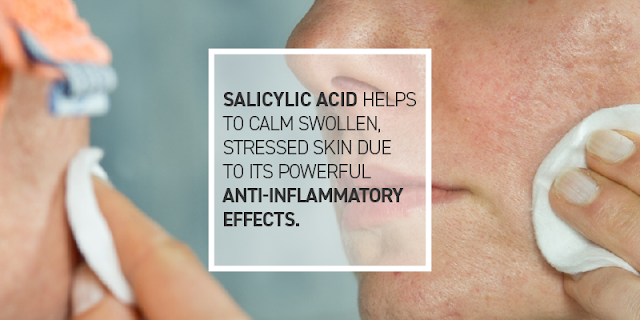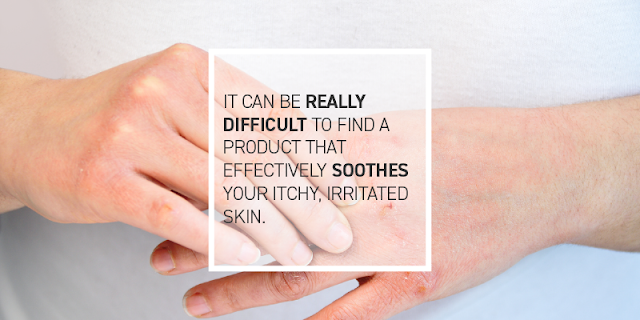Taking care of your skin is an on-going job, but your skin deserves it. After all, it most definitely takes care of you! Your skin is the largest organ of your body and serves a variety of purposes beyond making you look good. When it’s not feeling its best it deserves some attention and TLC from you!
Taking care of problematic skin isn’t as easy as grabbing the first over the counter tube you see. It requires some insight into your particular issue, and knowing the right ingredients to search for in an appropriate product, so you can look and feel your best!
Let’s take a look at some of the best ingredients you can seek out when you’re shopping for products for your skin concerns, whether that be acne, rosacea, eczema or aging.
Best Ingredients for Acne-Prone Skin
Acne isn’t just a teenage problem. Many people face adult acne well past their 20s. Your best bet is to find an anti-acne skincare routine that works for you and conscientiously stick to it.
Glycolic acid should be a part of your everyday regimen if you are prone to acne breakouts. It helps increase cell turnover, therefore helping you heal faster from breakouts, fade blemishes, and get rid of dirt and impurities. It takes a little getting used to, so start off with once to twice weekly use and build-up to the more frequent applications.
Salicylic acid helps to calm swollen, stressed skin due to its powerful anti-inflammatory effects. This beta-hydroxy acid works gently to exfoliate the upper layer of the skin. It is one of the most popular ingredients for troubled skin and is ideal for mild acne, blackheads, and whiteheads, as it exfoliates inside the hair follicle. It may be better tolerated than glycolic acid.
Benzoyl peroxide is available in both over-the-counter and prescription strengths with the ability to treat mild to moderately troubled skin. It’s an antibacterial agent that works best on oily skin and more resilient skin. “It’s the most effective over-the-counter ingredient for actually treating acne as opposed to only preventing it,” says Neal Schultz, MD, clinical professor of dermatology at Mount Sinai School of Medicine, and author of It’s Not Just About Wrinkles. “It kills bacteria, removes excess oil, and exfoliates dead skin cells.”
Retinoids are the multi-purpose ingredient of the year! For acne, these vitamin A derivatives control pimples by increasing cell turnover, which is also great for wrinkle-fighting. If you still suffer breakouts but are combating fine lines and wrinkles, add a retinoid into your routine. “Retinoids can inhibit and decrease the number of orchestrators of inflammation, not to mention other inflammation players,” says Adam Friedman, MD, associate professor of Dermatology at George Washington University. Use sparingly if you have sensitive skin, and wear sunscreen.
Best Ingredients for Rosacea-Prone Skin
Probably the easiest thing to do here is to create a list of ingredients to avoid. According to Leslie Baumann, M.D., author of Cosmetic Dermatology: Principles and Practice, these are the top ingredients to avoid if you have rosacea since they can cause dryness and irritation, leading to inflammation and redness:
- Fragrances
- Peppermint oil
- Eucalyptus oil
- Some alcohols
- Witch hazel
Reach for skin-soothing and calming ingredients that will gently moisturize and aid in settling inflammation:
- Green tea extract
- Argan oil
- Niacinamide
- Linoleic oils
- Chamomile
- Aloe
- Resveratrol
Eczema is a big concern for a large portion of the population. It can be really difficult to find a product that effectively soothes your itchy, irritated skin.
Ceramides help to repair the skin’s barrier by helping hold the cells together, creating a seal. When the barrier is functioning properly, the skin becomes stronger and more hydrated, leading to fewer flare-ups.
Niacinamide (B3) has huge skin-repairing power and anti-inflammatory properties giving it the ability to soothe angry, itchy skin. It can also help to stimulate ceramide production allowing for the reduction of the severity of eczema over time.
Shea Butter is naturally rich in vitamins A and E, and essential fatty acids. These are all key ingredients in keeping eczema-prone skin hydrated and supple. If the skin’s surface is flexible, it is less likely to dry out and crack. You can use shea butter throughout the day.
Beeswax or similar waxes can help to form a protective layer over the surface of the skin during pesky flare-ups, locking in moisture and helping protect skin from environmental irritants.
Best Ingredients for Aging Skin
Antioxidants can counter the damage done by careening free radicals, which cause damage to your DNA inside cells and result in wrinkles, dry skin, dark under-eye circles, dull skin, and more. Some ingredients with the most antioxidants that have been shown to repair damage and slow the aging process include:
- Acai oil
- Alpha-lipoic acid
- Green tea extract
- Retinol
- Coenzyme Q10 (CoQ10)
- Caffeine
- Vitamin C
- Niacinamide
- Vitamin E
Hydroxy acids (both alpha- and beta-hydroxy acids) like salicylic acid are exfoliants, which stimulate the growth of smooth, evenly pigmented new skin.
Copper is essential for collagen formation, contributing to the clearing and renewal of fractured collagen (such as from sun-damaged skin and scars). Jessica Wu, MD, Assistant Clinical Professor of Dermatology at the University of Southern California Medical School explains, “copper is non-irritating so it’s a good alternative for those with sensitive skin who may not be able to tolerate retinoids.”
Peptides are short chains of amino acids (the building blocks of proteins). They tell the skin to create collagen, which is essential for firm skin.
Skin Care Tips From MDSUN Skin Care®
Please Visit Our Official Website - MDSUN Skin Care




Comments
Post a Comment